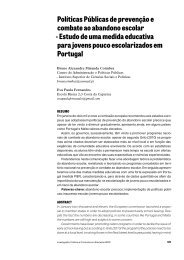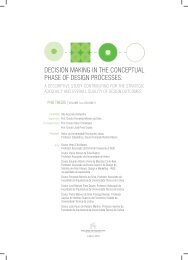ESTUDO DA INFLUÃNCIA DE PSICROTRÃFICOS AERÃBIOS E DE ...
ESTUDO DA INFLUÃNCIA DE PSICROTRÃFICOS AERÃBIOS E DE ...
ESTUDO DA INFLUÃNCIA DE PSICROTRÃFICOS AERÃBIOS E DE ...
You also want an ePaper? Increase the reach of your titles
YUMPU automatically turns print PDFs into web optimized ePapers that Google loves.
Extended Abstract<br />
STUDY THE INFLUENCE OF AEROBICS PSYCHROTROPHS AND<br />
ENTEROBACTERIACEAE IN LISTERIA MONOCYTONEGES 1/2a and 4b SURVIVAL ON<br />
MINIMAL PROCESSED SALADS<br />
All vegetables in their natural state are susceptible to spoilage by microorganisms at a rate<br />
that depends on various intrinsic and extrinsic factors. Consumers are increasingly<br />
demanding for convenient ready-to-eat vegetables and with fresh like quality, containing<br />
only natural ingredients.<br />
Plant tissues themselves, even having been contaminated by undesirable microorganisms,<br />
represent a well-defined ecosystem, and therefore different preservation methods should be<br />
use to guarantee their stability and safety as a food. Additionally, decontamination<br />
procedures to reduce the initial microbial load of raw material and methods to avoid postprocess<br />
contamination change the original micro flora of the ecosystem, affecting the kind of<br />
microbial consortium that can be established afterwards.<br />
Ready-to-eat vegetables retain much of their native indigenous flora after minimal<br />
processing and some pathogens may form part of this micro flora, posing a potential safety<br />
problem. Listeria monocytogenes is a micro organism widely distributed on plant<br />
vegetation. Plants and plant parts used as vegetable salads play a key role in disseminating<br />
pathogens from natural habits into the human food supply chain. L. monocytogenes is a<br />
psychrotropic organism, capable of growing at refrigeration temperatures, and it is also a<br />
facultative anaerobe, therefore, capable of survival/growth under low O 2 concentrations<br />
present in modified-atmosphere packaged vegetables. By screening out these<br />
characteristics, we are able to study the micro organism growth, obtaining important<br />
understanding of salads conditions and sanity state, necessary to produce data for<br />
predictive models elaboration.<br />
This thesis main objective was to i) study the growth development of spiked L.<br />
monocytogenes in minimally processed salads, through the simulation of their storage<br />
conditions in consumer’s fridges and to ii) understand how the native micro flora present has<br />
an influence in its growth. Thus, to control both presence and concentration of some<br />
microorganisms in these salads, simple microbiological analysis were performed for<br />
psychrotrophs, Enterobacteriaceae, Escherichia coli, Aeromonas hydrophila,<br />
iv



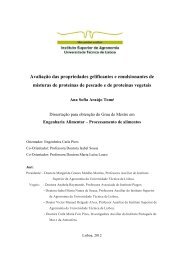
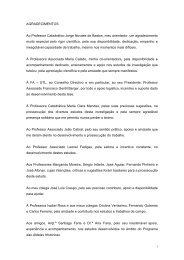
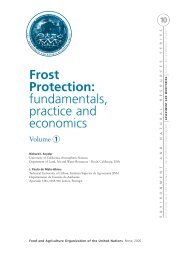
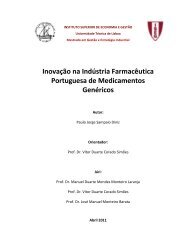
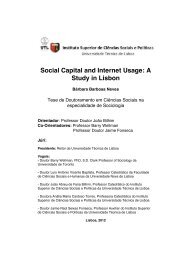
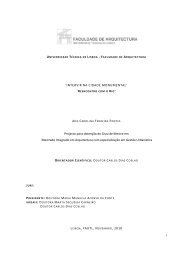
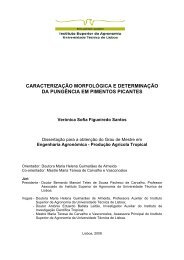

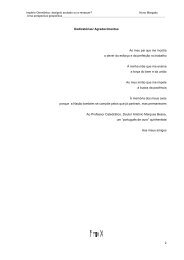

![Tese - Es..[1].pdf - UTL Repository - Universidade Técnica de Lisboa](https://img.yumpu.com/25707135/1/184x260/tese-es1pdf-utl-repository-universidade-taccnica-de-lisboa.jpg?quality=85)
